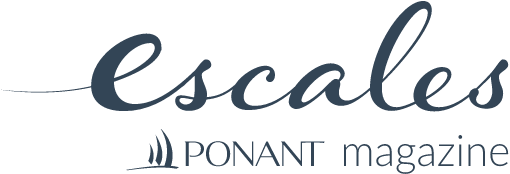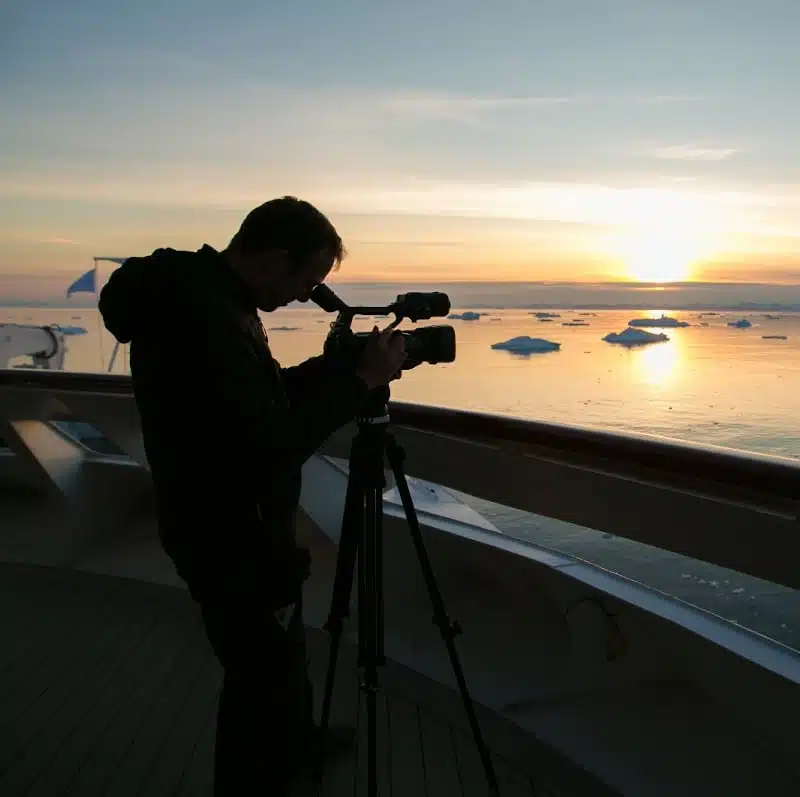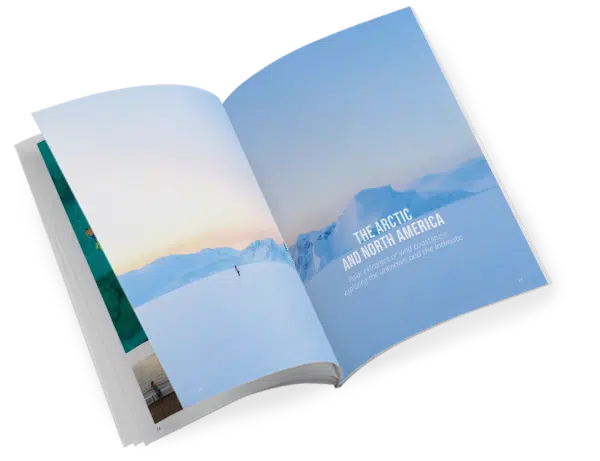“A successful image is an image that begins by surprising you”
Photos and videos are one of the best ways of keeping permanent memories of your voyages. And this is all the more true when we are able to hand the task to professionals. Discreet in their approach, and with an eye for details that sometimes escape us, photographer Olivier Blaud and videographer Elie Vannier travel onboard on PONANT cruises in order to capture the best moments experienced by the passengers.
What is the destination…
… that made the biggest impression on you?
Olivier Blaud: “The Antarctic! It’s an exceptional environment to work in, a magical place to discover. The nature and the landscapes there are constantly changing. The light is exceptional. There’s always something that catches the eye and that you want to immortalise for ever. The Arctic is also spectacular, with its bears and the encounters with local populations.”
Elie Vannier: “I agree: the Antarctic is extraordinary. I’ve been going there for four seasons now, and I’m still not tired of it. Every time I go back, I find new aspects to interest me, details I would have never noticed before: the wildlife, the history… I particularly remember a day when we were aboard a Zodiac inflatable and five or six whales came up very close, feeding. It was incredible.”
Images : Elie Vannier
… where you photographed the most unusual animal?
Olivier Blaud: “I remember a trip out very early one morning in South Georgia. I saw two penguins stood out against the light, face to face, their heads and beaks forming the shape of a heart. Normally, we run around a lot everywhere, but in this case I really was able to wait for just the right moment, and it was amazing.”
Elie Vannier: “I managed to film a type of green budgerigar in the New Zealand Subantarctic Islands. When the naturalists saw the images, they told me it was very rare.”
… that still leaves you with a sense of amazement?
Oliver Blaud: “That’s easy! The Northwest Passage. In Disko Bay, we had the opportunity to fly for 50 kilometres over a glacier by helicopter. It set us down on a rocky outcrop overlooking the glacier. Seeing it from the air makes you realise just how enormous it is. You feel tiny in comparison to its sheer immensity.”
Elie Vannier : “I’d like to see the completely isolated penguins, from onboard Le Commandant Charcot.”
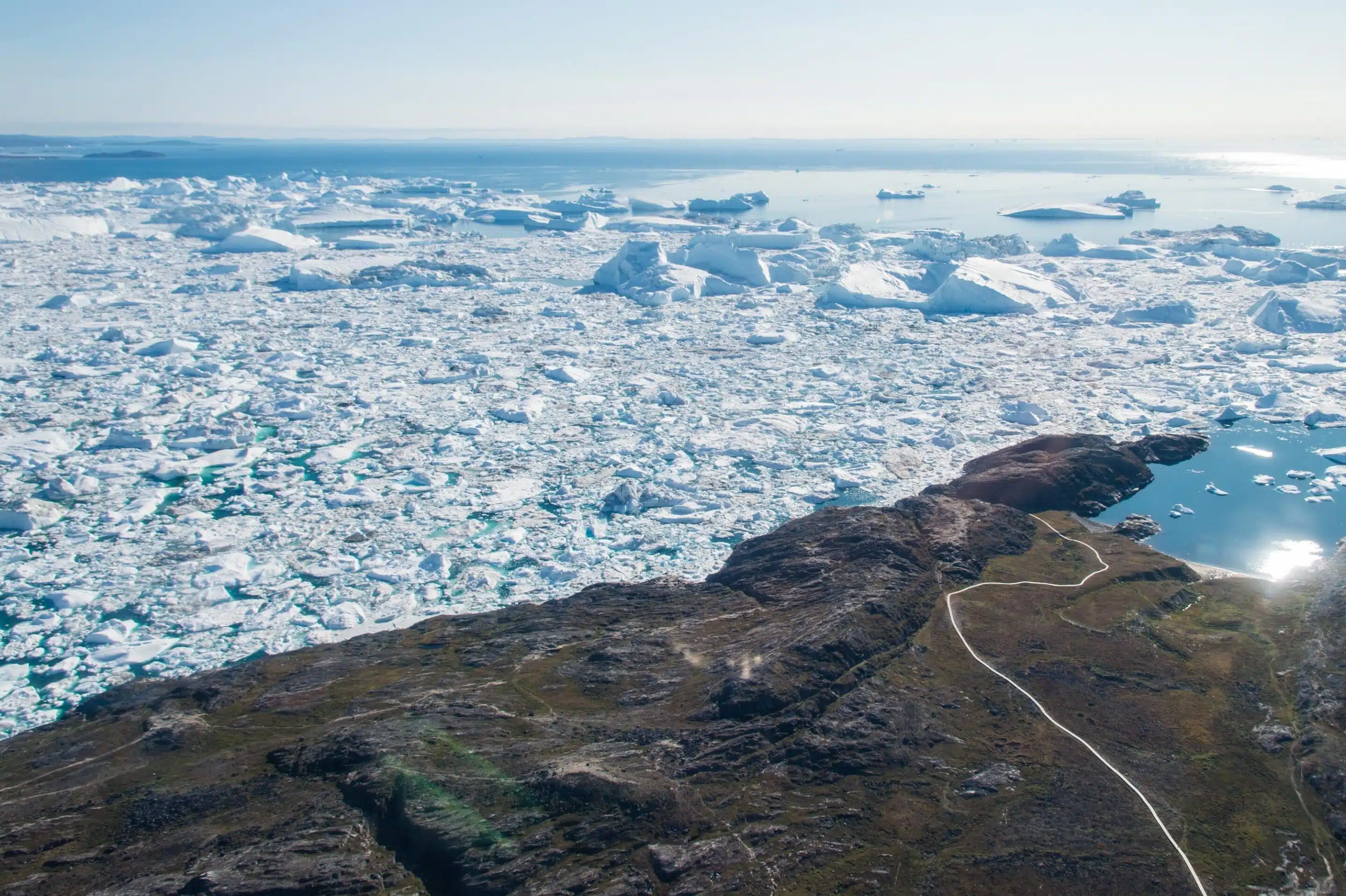
© Sudio PONANT / Olivier Blaud
Professional influences
Olivier Blaud:
“I really like the way French documentary maker Jean-Michel Bertrand, who made Marche avec les loups, shows how the recording of the footage of the animals is set up. You can see just how much time and dedication that requires. “
Elie Vannier:
“Vincent Munier is a wildlife photographer who creates extraordinary images. Unlike other wildlife photographers, who try to capture the perfect photo, he plays around with the scenery and the shadows, and by photographing against the light. He shows us that wildlife photography does not necessarily have to be naturalistic: it can and should also be aesthetically pleasing.”
… with the most beautiful scenery?
Olivier Blaud: “We were in Alaska, in Geographic Harbor. We were at the mouth of a river famous for brown bears, which go there to fish. It’s there that I had the chance to photograph a female with two cubs, which were playing and rolling in the grass. It was a delightful gift!”
Elie Vannier: “The Horizontal Falls in Australia’s Kimberley region. It’s an impressive, astonishing and unique phenomenon that occurs in the middle of an area of natural gorges.”

… where you took your most striking portraits?
Olivier Blaud: “I find the Polynesians to be a radiant, generous and highly emotionally expressive people. I remember a picnic organised on a little island near Bora Bora with a group of Polynesians, who were singing. Their communicative smiles, their expressions, the sensuality conveyed by their movements – it was all very photogenic. We genuinely experienced a wonderful moment of human beings coming together and sharing and communicating.”
Elie Vannier: “We were at Asmat on the island of New-Guinea. In the morning, our ship was met by dozens of canoes that led us to the village to visit the “men’s house”. We had the opportunity to go inside this large hut – which women are not allowed to enter – ahead of the passengers to see the men preparing themselves: applying make-up in the form of coloured pigments and entering into a sort of trance. I genuinely felt I was participating in a sacred act that meant something to these men. They were sharing a very important ritual. It wasn’t a show; they weren’t pretending. It was a genuine moment out of time.”
What makes a successful image?
Olivier Blaud:
“It’s an image that’s both astonishing and has something to say. It’s an image that not only begins by surprising you as a photographer the moment you take it, but also when you look at it again or show it to others.”
Elie Vannier:
“When we’re on a cruise, we’re working under a time constraint: as a videographer, I have to have the footage ready at the end of the cruise, when we show the film in the theatre. I feel I’ve made a success of a film when I’ve found the right compromise between the time spent on it and the must-see images created. This also means I’ve managed to remain largely inconspicuous whilst at the same time being everywhere.”
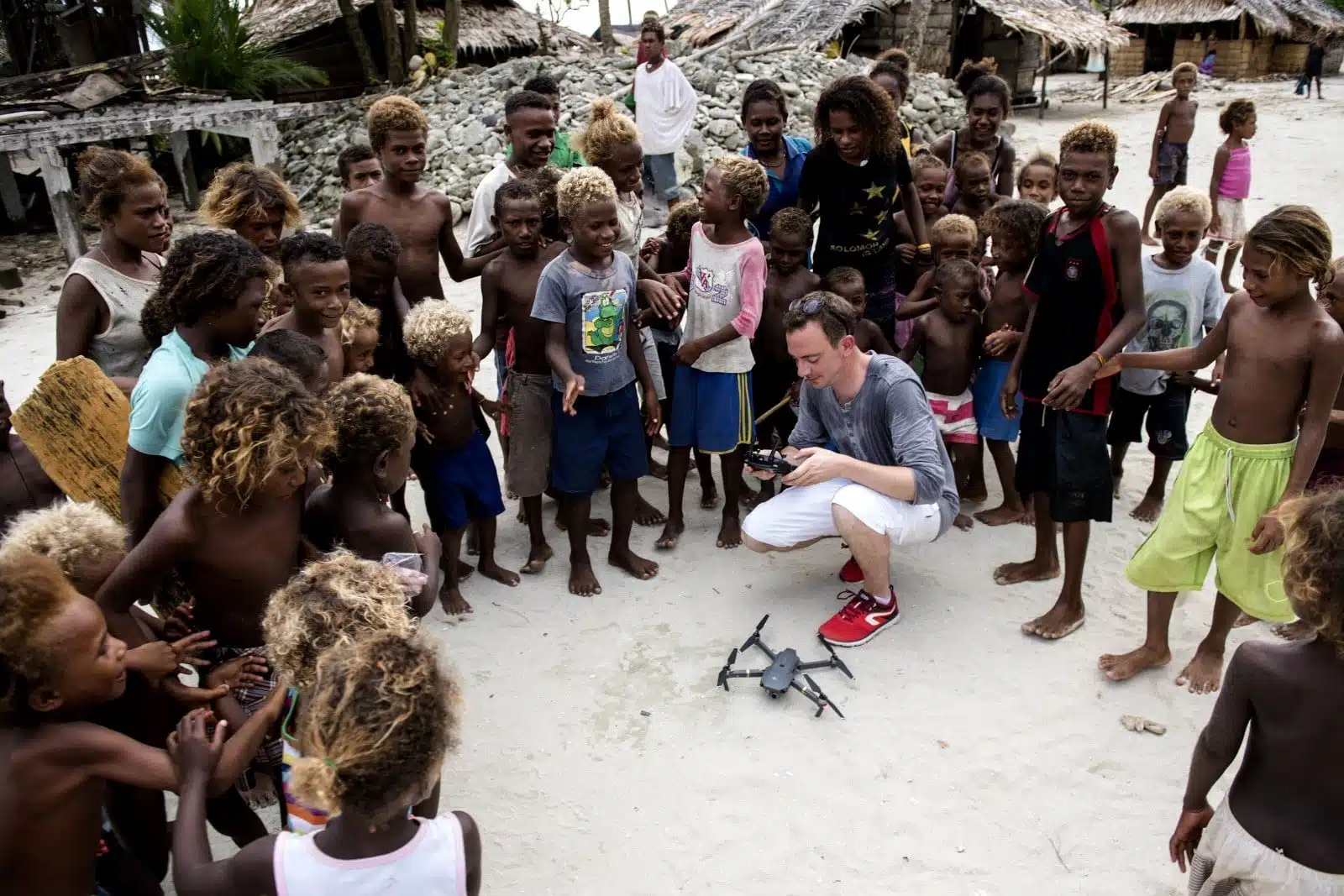
Photos credits: © Studio PONANT / Elie Vannier ; © Studio PONANT / Olivier Blaud
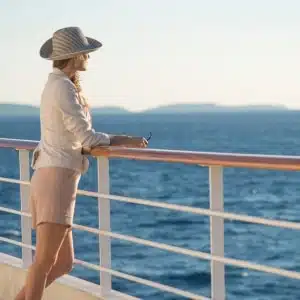
Explore the world with PONANT
Embark for an unforgettable cruise and discover the treasures of the Earth
